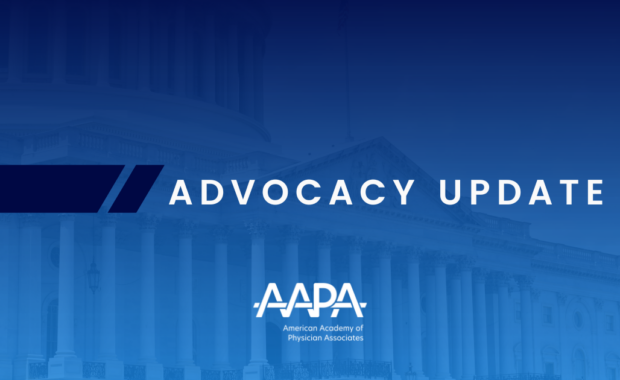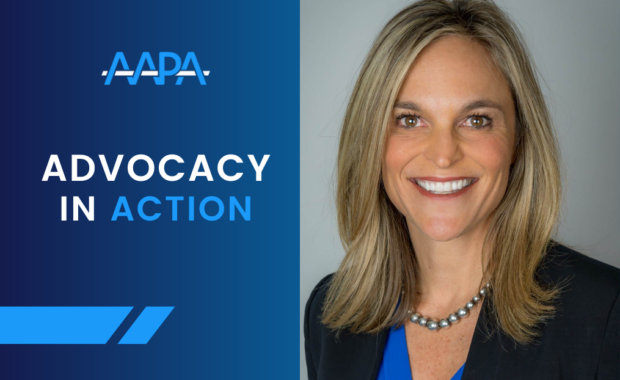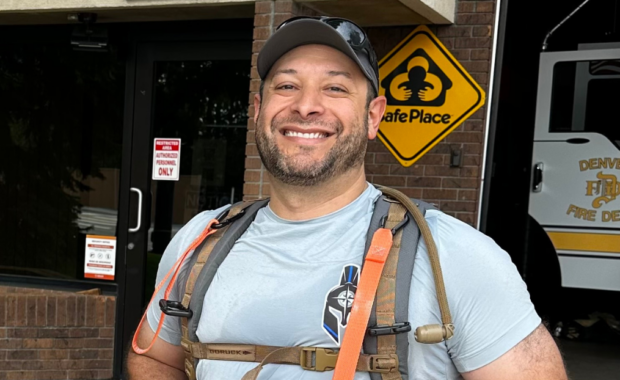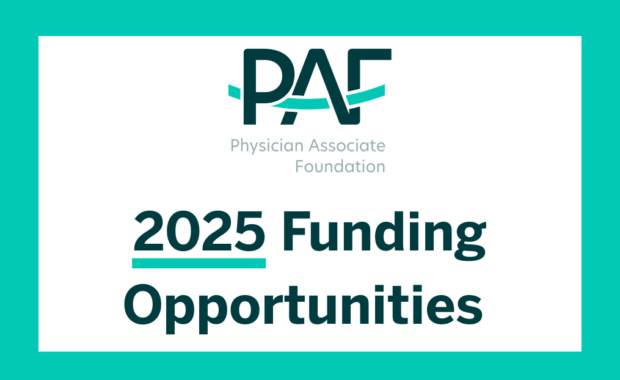2023 PA of the Year is Dedicated to Raising Awareness About Maternal Mental Health
Mary Banahan’s Grant-Funded Project Confronts Racial Inequalities in Maternal Mental Health and Indigenous Women
May 19, 2023
By Sarah Blugis

AAPA’s 2023 PA of the Year, Mary K. Banahan, MS, PA-C, was inspired to pursue a career in medicine by an unlikely source: the 1970s war comedy-drama television series M*A*S*H. She was intrigued by the dedication, skill, and care with which soldiers on the show were treated. Since the PA profession wasn’t as well known when Banahan started college, she assumed she would go to medical school – but then she found out more about the PA profession.
“I wanted to practice medicine and learn in the medical model, so I decided to apply to a PA program when I was graduating and never looked back,” she says. “It was one of the best decisions I ever made.”
The PA of the Year Award honors PAs who demonstrate exemplary service to the community; exemplify the PA profession’s philosophy of providing accessible, quality healthcare to all; and furthers the image of the profession in a positive, meaningful way.
Banahan is a full-time faculty member and dual degree coordinator for the Hofstra University PA Program, where she feels privileged to teach the next generation of PAs while also preparing undergraduate students in Hofstra’s dual degree pre-PA program.
Outside of her role as an educator, though, Banahan is a passionate and dedicated volunteer for the Postpartum Resource Center of NY, Inc. (PPRCNY). The organization helps mothers and families in New York State going through a perinatal mood and anxiety disorder (PMAD), helps to spread awareness about PMADs, and provides training about PMADs to healthcare providers in the community, such as doulas.
This work is deeply and significantly personal for Banahan. “I started volunteering twenty-two years ago after the PPRCNY helped me recover from postpartum depression after the birth of my second son,” she says.
Now, in her role as an educator, Banahan educates her students about PMADs, telling her own personal story so that the next generation of clinicians are more aware of the issue. She wants them to know, she says, that PMADs affect all kinds of women from all backgrounds.
“The response from my students has always been overwhelming,” Banahan says. “When I tell my story, PMADs become more than just another disease about which to learn. It takes on the face of their instructor and it means more. It becomes real.”
But Banahan has taken her mission to educate others about PMADs even further. When she learned that Indigenous women are at a higher risk of PMADs and postpartum suicide than other racial and ethnic groups, she was determined to use her own personal experience and knowledge to help.
“Far too many mothers are stigmatized and suffer in silence, and this is especially true of our Indigenous communities,” Banahan says. “It’s our duty as PAs to ensure that all people receive equitable, high-quality healthcare and my passion lies in volunteering my time helping this come to fruition.”
Together with a Hofstra University PA program colleague and the PPRCNY, she applied for an nccPA Health Foundation Be the Change Grant, meant for projects that expand access to health promotion, education, and treatment as strategies for fostering more equitable care.
Their grant application was successful, and Banahan’s project – “Confronting Racial Inequalities in Maternal Mental Health in Indigenous Women” – started right away. Her goal was to enhance access to maternal mental health screening, support, and education for women of the Shinnecock Indian Nation, a self-governing tribe in the state of New York, located on Long Island with over 1,500 enrolled tribal members.
From April through July of 2022, Banahan and her team provided Shinnecock tribal leaders and healthcare providers with educational workshops about PMADs, trained them to screen mothers in their community and to provide telephone and group support, and educated them about resources for treatment. They also adapted an informational palm card from the PPRCNY, including a photo of a Shinnecock mother and child in native attire and several phrases in the native Shinnecock language.
Thanks to this project, Banahan says, “these providers will now be able to better serve their mothers by educating them and their community, identifying those at risk, and providing assistance for those suffering from a PMAD.”
Though the “train the trainer” portion of the project has concluded, there is still work to be done. Banahan and her team plan to continue working with the Shinnecock Nation and support them as they move forward, and are in regular contact with their contacts there.
For Banahan, the most rewarding part of being a PA is knowing that she has really helped a patient to improve their health and quality of life. She hopes that her father, who passed away five years ago, is looking down and proud of her achievement as the 2023 PA of the Year.
“This award means that I’ve lived up to the promise that I made to myself, the profession, my patients, and the community thirty-five years ago when I recited the PA professional oath,” Banahan says. “It means that I’ve done something right in my professional career as a PA, and that I’ve set an example for my sons and my PA students.”
Sarah Blugis is AAPA’s Internal Communications Manager. She can be reached at [email protected].
You May Also Like
2023 Award Recipients
Major Marc Latta Focuses on Transformation
Cardiology PA Viet Le Helps Pave the Way for More PA Researchers
Thank you for reading AAPA’s News Central
You have 2 articles left this month. Create a free account to read more stories, or become a member for more access to exclusive benefits! Already have an account? Log in.



